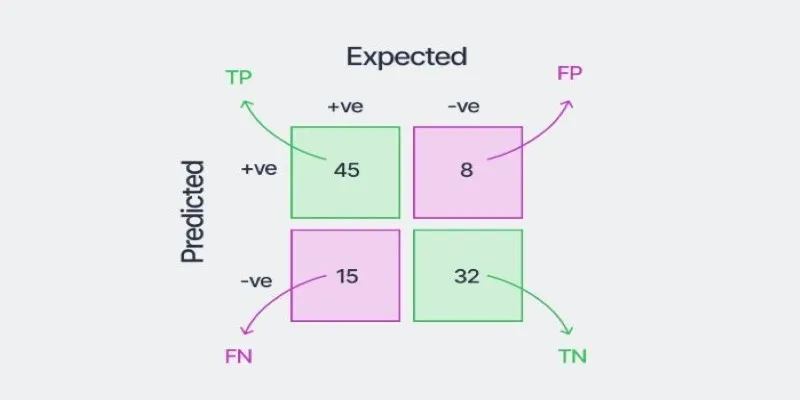Understanding statistics is no longer optional—it’s a core requirement for anyone diving into data science, machine learning, or even AI development. While textbooks are helpful, the rise of open-source platforms like GitHub has completely changed how we learn technical subjects. If you’re eager to learn statistics in a more interactive, project-based way, GitHub repositories are a goldmine.
Let’s walk through ten of the best GitHub repositories that make mastering statistics both practical and approachable.
Top GitHub Repositories to Master Statistics
These ten GitHub repositories offer a mix of theory, practice, and real-world examples, making them perfect resources to learn statistics GitHub style. Whether you’re just starting out or refining your skills, these projects will guide your journey.
1. Data Science Resources
This repository is like a master library for aspiring data scientists. It brings together curated materials, tutorials, datasets, and tools for learning everything from basic statistics for data science to machine learning and big data.
Highlights:
- Structured learning paths for guided progress
- Covers both beginner and advanced topics
- Community-driven and constantly updated
It’s perfect for someone who wants a broad overview before diving deep into individual topics.
2. Elements of Statistical Learning
Based on the well-known book by Hastie, Tibshirani, and Friedman, this repository complements the theoretical insights of statistical learning with practical implementations.
What it offers:
- Solved exercises and concept-based code snippets
- Detailed notes on techniques like regression, classification, and unsupervised learning
- Often includes both R and Python resources
This is ideal for those who already have a basic foundation and want to explore in-depth topics.
3. Think Bayes

If you’re curious about Bayesian thinking, Think Bayes makes a solid starting point. It’s based on Allen Downey’s book and offers intuitive, hands- on examples.
Why it’s helpful:
- Focus on Bayesian statistics through simple Python projects
- Real-world cases like prediction and belief updating
- Clear, beginner-friendly explanations
This is a go-to for understanding uncertainty and probabilistic reasoning without getting lost in jargon.
4. Think Stats
Also authored by Allen Downey, this repository focuses on general statistical principles using Python. It’s designed for learners who prefer practice over pure theory.
Best for:
- Understanding estimation, distributions, and hypothesis testing
- Working with real-world data sets
- Applying concepts step-by-step with clean, commented code
If you’re a beginner with basic Python skills, this repo will ease you into statistical thinking with clarity.
5. Introduction to Statistical Learning
This repository is a Python-based companion to the popular “Introduction to Statistical Learning ” textbook. It covers essential concepts like linear models, decision trees, and clustering.
What’s inside:
- Python implementations for book chapters
- Interactive notebooks with visual explanations
- Supplementary materials like datasets and diagrams
It’s a great choice if you prefer learning through notebooks rather than static textbook content.
6. Bayesian Methods for Hackers
One of the most popular repos on Bayesian inference, this project presents statistical concepts in a hacker-friendly format using Jupyter notebooks.
What makes it stand out:
- Focus on Bayesian reasoning with fun, engaging examples
- Visualizations that simplify complex ideas
- Covers loss functions, uncertainty, and simulations
Highly recommended for those who enjoy learning through storytelling and practical modeling.
7. Stats-Maths-with-Python
This is an all-in-one resource for those who want to bridge the gap between mathematics and statistics for data science. The author shares comprehensive notebooks explaining mathematical principles through Python.
What you’ll find:
- Topics like hypothesis testing, Bayes’ rule, and regression
- Visual walkthroughs of concepts
- Mathematical breakdowns plus real coding practice
It’s a great reference for both academic learners and working professionals brushing up on core topics.
8. TensorFlow Probability
For those working in deep learning, this repository is a goldmine. TensorFlow Probability extends TensorFlow with probabilistic reasoning tools.
Why you’ll love it:
- Combines machine learning with statistics
- Supports Bayesian neural networks, probabilistic PCA, and more
- Integrates easily with TensorFlow models
Use this if you want to understand uncertainty in ML predictions or apply statistical models within your neural networks.
9. Practical Statistics for Data Scientists

A practical repository that complements the well-known book “Practical Statistics for Data Scientists.” This one is perfect for learners looking for actionable content.
Offers:
- Examples in both R and Python
- Case studies for real-life problems
- Covers EDA, hypothesis testing, regression, and classification
If you’re preparing for a data science role or working on projects, this repository will sharpen your practical skills.
10. Statsmodels: Statistical Modeling and Econometrics in Python
The Statsmodels library is well-known for econometric and statistical modeling. This GitHub repository is its home and includes extensive documentation and examples.
Why it’s useful:
- Implementations of linear, logistic, and time series models
- Tools for hypothesis testing and statistical validation
- Ideal for economists, researchers, and data analysts
For in-depth modeling and theory-driven exploration, this tool will serve you well.
Why GitHub Repositories Are Great for Learning Statistics
GitHub repositories aren’t just about downloading code. Here’s why they work so well for learning:
- Interactive Practice: Most repositories include Jupyter notebooks, letting you run code, make changes, and see results instantly.
- Community-Driven: These projects are often maintained by professionals and researchers, offering you free access to industry-grade learning materials.
- Real-World Datasets: Instead of abstract numbers, you work with actual data—tweets, sales, demographics—making your learning more relatable.
- Continuous Updates: Unlike textbooks, these repositories evolve. You’ll stay updated with current techniques and trends.
Conclusion
There’s no shortage of content online, but not all resources are created equal. These ten GitHub repositories stand out because they combine clarity, hands-on practice, and a collaborative learning approach. Whether you’re just starting to learn statistics or want to sharpen your skills for machine learning and data science, you’ll find something valuable in each.
So, bookmark these repositories, start exploring one at a time, and don’t just read—code along. With consistent effort and curiosity, you’ll turn statistical theory into practical power.
 zfn9
zfn9
















